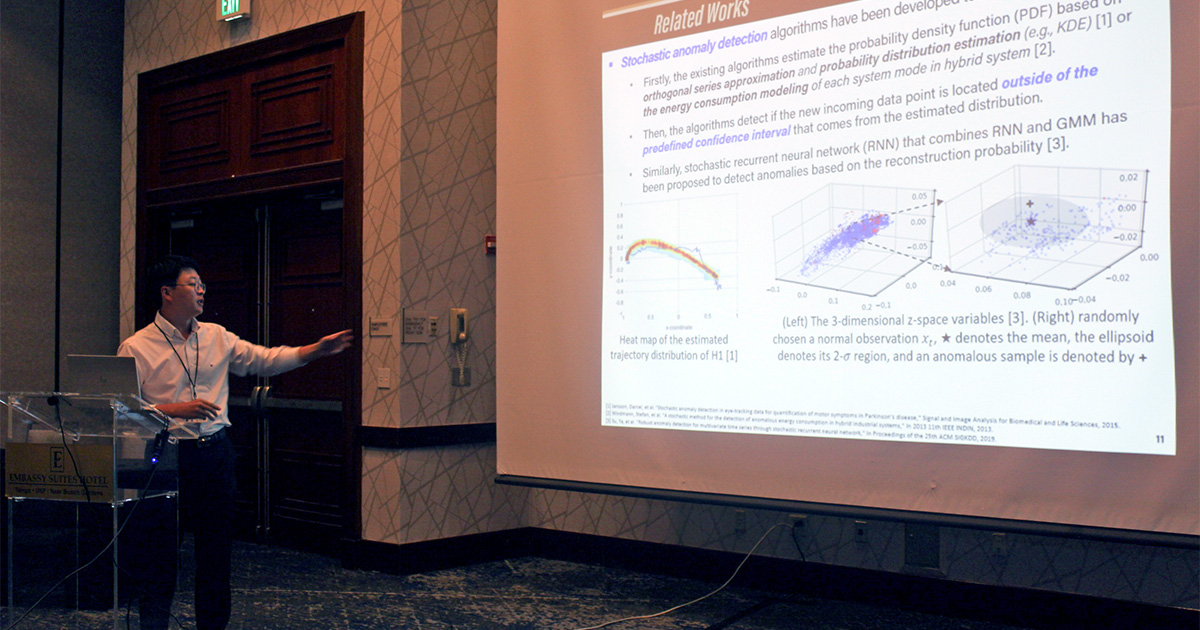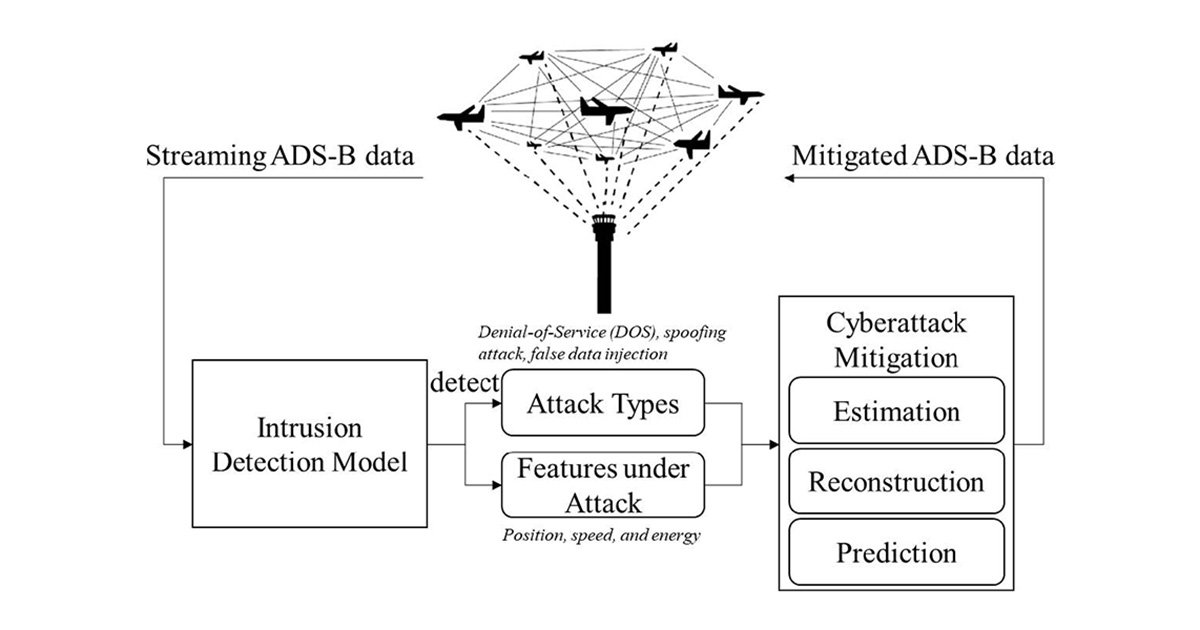AAE research could identify and block cyberattacks on air traffic control systems
| Author: | Alan Cesar |
|---|

Airport air traffic control systems are prime targets for cyberattacks. The revolutionary Automatic Dependent Surveillance–Broadcast (ADS-B) system that underpins modern aircraft tracking is priceless for reducing the risk of collisions as well as costs.
It is, however, also a vulnerability.
“Malicious cyberattacks can disrupt and deceive air traffic controllers, leading to severe safety issues such as fatal accidents and runway excursions,” writes Hong-Cheol Choi, a Purdue AAE graduate student. “An intentional cyberattack has the potential to mislead air traffic controllers into believing that a trailing aircraft is farther away than it actually is. This can lead to an aircraft landing on a runway that is already occupied, resulting in a potentially catastrophic collision.”
But Choi isn’t just complaining. He’s working on a solution. With AAE professor Inseok Hwang as his advisor, he just received funding from the Transportation Research Board (TRB) to find a software-based solution that could intelligently filter out these attacks.

His framework will use neural networks to identify which systems are being attacked and when. Part of their approach is to check a flight's surveillance data as it approaches an airport, to see if its current reported location is possible based on factors like where it’s been.
For spoofing attacks or large-scale Denial of Service (DoS) attacks, they will use a form of Hwang’s target identity management methods.
Any identified threat would be corrected automatically before the data is passed on to human air traffic controllers, allowing them to continue their work unabated. “Our proposed framework will be able to accurately detect various cyberattacks and allow normal air traffic operations to continue even while under attack,” Choi says.
The TRB’s Graduate Research Award, under their Airport Cooperative Research Program, will give Choi a “$12,000 stipend, access to a panel of expert advisors in the chosen research area, an opportunity to present at the TRB Annual Meeting following completion of their paper, and the potential to publish that paper in the Transportation Research Record.”
The ACRP funds applied research on airport and related aviation system issues with a goal to help the public sector continue to improve civil aviation in the U.S.
